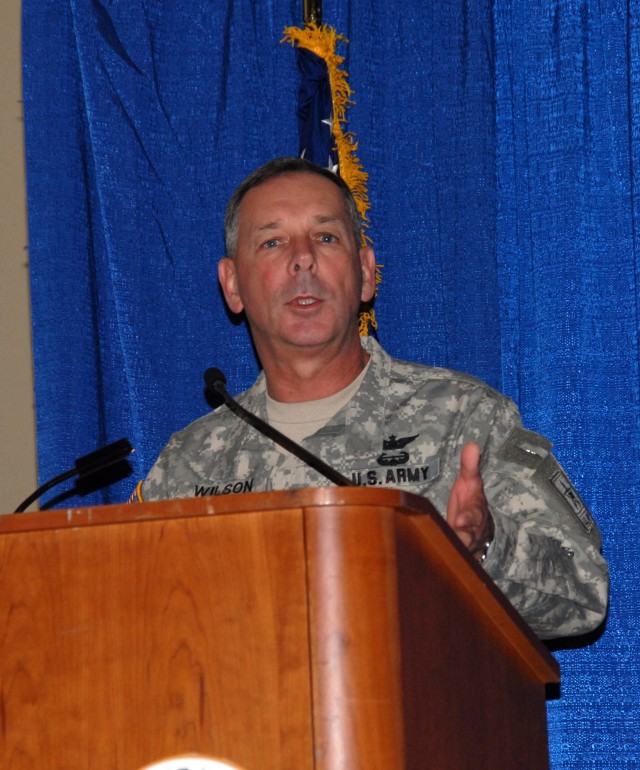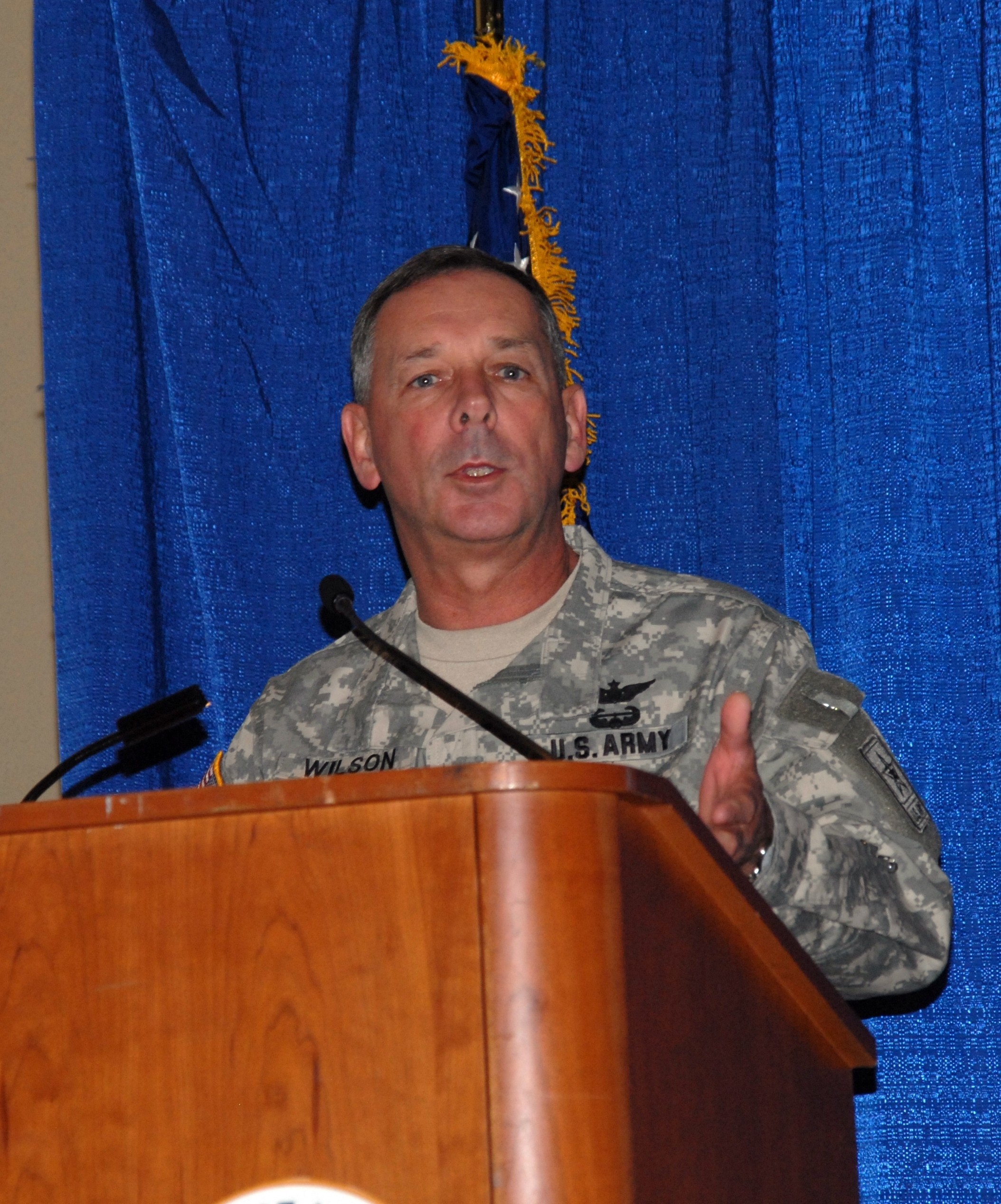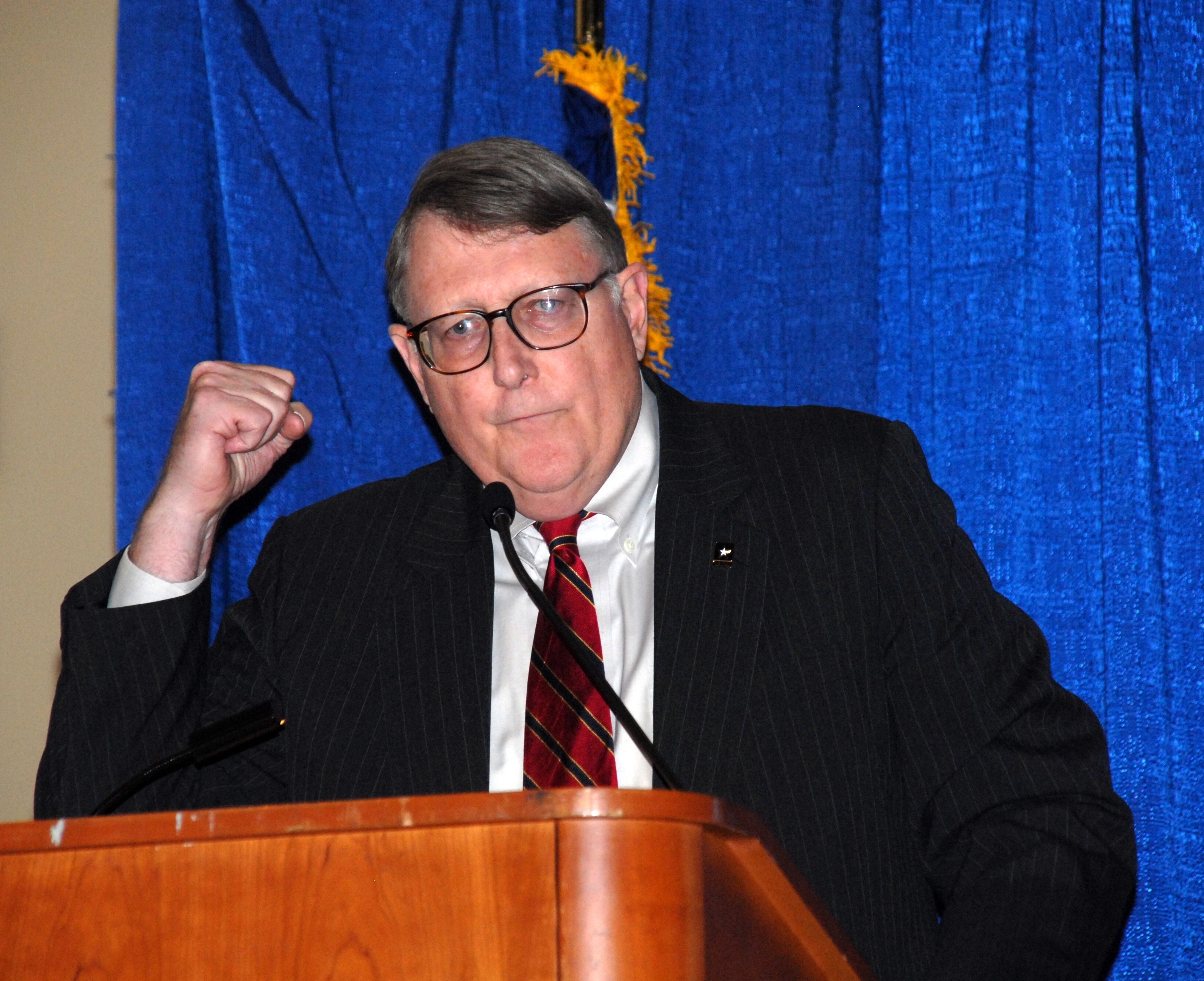WASHINGTON (Army News Service, October 8, 2008)- The Assistant Chief of Staff for Installation Management /Commanding General of Installation Management Command guided a panel discussion on providing Soldiers with the best quality of life possible at the Association of the United States Army Annual Meeting and Exhibition here on Tuesday.
Lt. Gen. Robert Wilson, ACSIM/CM IMCOM led the forum "Quality of Life Equal to Quality of Service," which discussed the priority of giving Soldiers and their Families the best quality of life and how BRAC plays an important role in that goal.
A large part of taking care of the Soldier and Families comes with providing excellent facilities for barracks, health care, family housing, and recreation. The base realignment and closure effort completes a significant portion of that requirement.
Maj. Gen. Merdith W. B. Temple, U.S. Army Corp of Engineers presented a slide-show on the world-wide construction effort that is a part of BRAC.
"There is a tremendous amount of effort going into all installations in the Army, here at home and abroad." Temple said, "We've got a lot of work focused on the Soldiers and their Families."
The USACE is building about one billion dollars worth of barracks facilities in fiscal year '09. Other big-ticket structures include medical facilities, child development centers, schools, family housing and warrior-in-transition facilities.
"We've got about $45 billion worth of work to for the Army alone over the current POM," Temple said. "What's important for you to remember is that over $7 billion, or about 15 percent of that total amount of money, is devoted to the kind of facilities I just showed you here."
Wilson opened the forum with a review of the Family Covenant and its accomplishments over the past year. The covenant recognizes the sacrifices Soldiers make every day and the strength of their Families. It pledges to give a quality of life equal to the quality of service from a Solider.
Over the past year, the Covenant has established Army Onesource, which provides access to standardized services, programs and support to all Soldiers and their Families no matter where they are located, Wilson explained.
The Covenant has also increased access and improved quality in the health care systems, expanded deployment cycle support, enhanced the employment readiness program, provided recreation and library access to deployed military personnel, and improved Solider barracks and family housing.
"What we've got to do is make sure we measure and provide stress relief and those services to the Soldiers and Families," Wilson said of the Covenant, "We equip the Soldiers, we man them correctly, we train them right for what's in front of them and we take care of the Families while doing so."
Wilson closed out the discussion panel by reiterating the significance of the BRAC effort in relation to giving Soldiers the best quality of life possible.
"BRAC is tough," he said, "because you are moving so much of the Army, you're building so much of the Army, but I don't see BRAC as a four-letter word. I see BRAC as a good thing, and why is that' Because we're building new capabilities, new infrastructure in all these bases and we would never have the money to do that otherwise.
"This is good for the Army."
Other presenters included the Assistant Secretary for the Army for Installations and Environment Geoffrey Prosch and Command Sgt. Maj. John Gaines, ACSIM/IMCOM, who highlighted the importance of privatization of funds for building facilities, and the First Sergeant's Barracks Initiative and Better Opportunities for Single Soldiers program, respectively.




Social Sharing